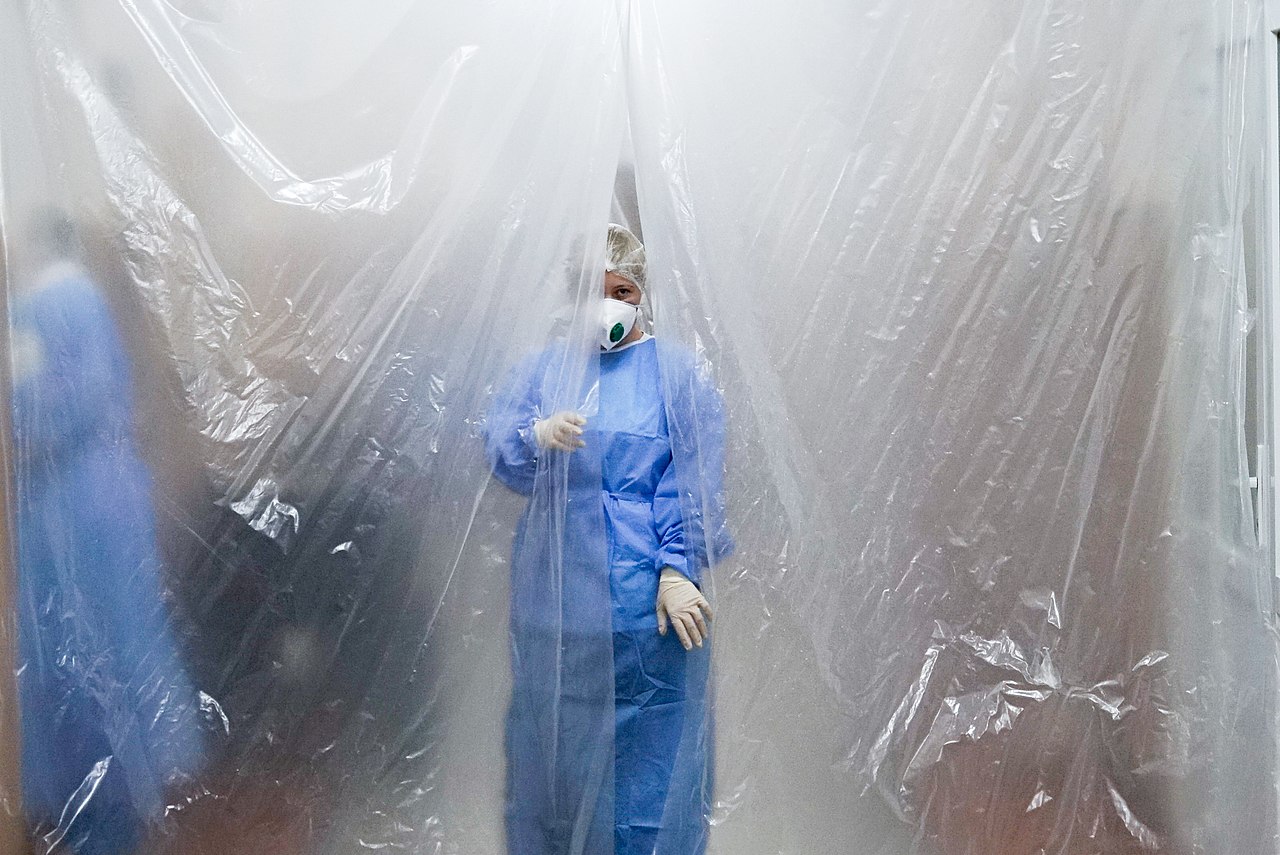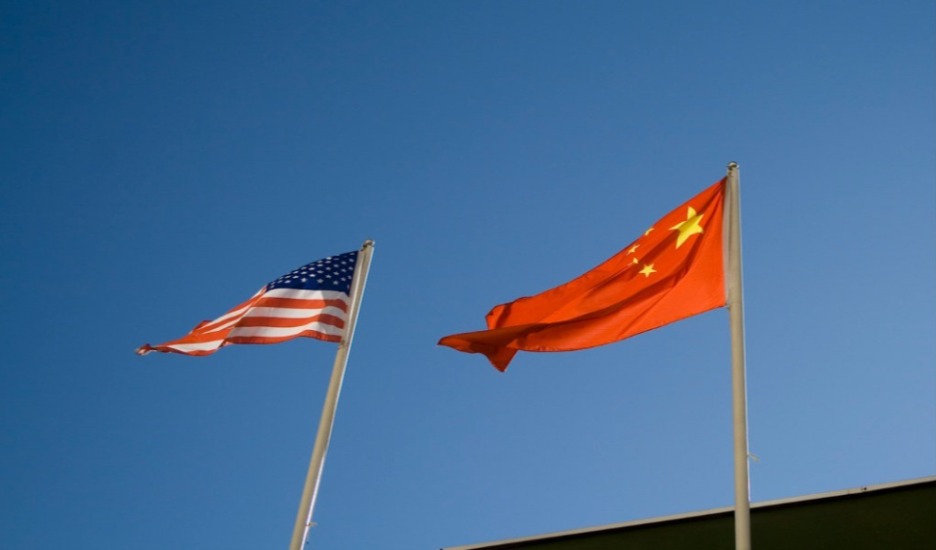Missouri Decision Foreshadows Outcomes of Remaining Coronavirus-Related Suits Against China
The district court’s dismissal of the State of Missouri’s billion-dollar lawsuit against China over its COVID response bodes ill for similar remaining coronavirus-related suits.

Published by The Lawfare Institute
in Cooperation With

Americans seem to think that virtually every problem can be solved with a lawsuit. This certainly proved true when it came to assigning blame for the international coronavirus outbreak. Shortly after the first wave of coronavirus infections hit the shores of the United States, over a dozen civil lawsuits were filed accusing the People’s Republic of China and related entities of causing the pandemic. Two of us have previously written here and here about the initiation and slow progress of these suits, noting at the time that they were unlikely to succeed given China’s immunity under the Foreign Sovereign Immunities Act. In July, the U.S. District Court for the Eastern District of Missouri bore those expectations out when it invoked the act to dismiss the most prominent of the China coronavirus cases, the suit brought by the State of Missouri. In so doing, the court has likely foreshadowed the eventual outcome for the dozen cases still waiting in the wings.
The suits that plaintiffs began filing in mid-March 2020 called for the Chinese government and various Chinese entities, including the Chinese Communist Party (CCP), to be held to account in U.S. courts. Some of these suits were national class actions that demanded trillions of dollars (for example, Buzz Photos v. People’s Republic of China; Bella Vista v. People’s Republic of China), while others sought more modest recoveries (for example, Smith v. People’s Republic of China; Greco v. Chinese Communist Party; Edwards v. People’s Republic of China).
By filing these suits, plaintiffs were presumably hoping for either sustained publicity or a quick victory via default judgment. They have ended up getting neither. Despite their well-publicized starts, nearly all of these suits have stalled out in the service-of-process phase, even as media coverage has flickered out. Only a small handful of suits have reached the merits, and nearly all of those have been pro se prisoner suits that were dismissed on the basis of sound (but so far thinly reasoned) decisions.
One exception to this overall pattern has been the aforementioned lawsuit by the State of Missouri, which has moved faster than most of its sister suits and was decided on July 8. Missouri filed its lawsuit back in April 2020—amid much fanfare and press coverage—against China and eight affiliated defendants, including state bodies such as China’s Ministry of Civil Affairs as well as entities like the Chinese Communist Party, the Wuhan Institute of Virology, and the Chinese Academy of Sciences. Seeking to recover “for the enormous loss of life, human suffering, and economic turmoil experienced by all Missourians from the COVID-19 pandemic,” Missouri blamed the Chinese defendants for initially causing the pandemic, allowing it to spread, and hoarding personal protection equipment. Missouri alleged that the Chinese defendants were liable for four tort claims: public nuisance, abnormally dangerous activities, breach of duty by allowing transmission of COVID-19, and breach of duty by hoarding personal protection equipment. As recompense, the state argued, it was due “billions—and possibly tens of billions—of dollars [for] economic damages, as well as substantial non-economic damages.” It also asked that China be ordered to cease activity that negatively impacted the lives and health of Missourians, including alleged censoring of media and research, failure to quarantine, and hoarding of equipment.
Since none of the nine defendants decided to appear before the court, Missouri successfully moved for a clerk’s entry of default judgment following service. The state then sought discovery to bolster its claims before a final entry of judgment, but U.S. District Court Judge Stephen N. Limbaugh decided to stay the proceedings to determine whether he had the authority to hear the case at all under the Foreign Sovereign Immunities Act. The answer, he decided, was no.
Under the act, foreign states are presumptively immune from the authority of courts in the United States unless plaintiffs can show that a specific, enumerated exception to immunity applies. This presumptive immunity covers not only the foreign state itself but also all of its political subdivisions as well as its agencies and instrumentalities. The act in turn defines “agency or instrumentality” to mean any entity that is a separate legal person from the state but still one of its organs or political subdivisions, or any other entity that is majority owned by a foreign state (like a state-owned enterprise).
Limbaugh began his opinion by determining whether all of the defendants qualified for sovereign immunity under the act. For most defendants, that was not an especially hard question. The People’s Republic of China is self-evidently a foreign state, and defendants like the Chinese Ministry of Civil Affairs are self-evidently part of that state. But three of the defendants represented much closer questions: the Chinese Communist Party, the Wuhan Institute of Virology, and the Chinese Academy of Sciences.
The first of these three defendants, the Chinese Communist Party, did qualify as “a foreign state or the equivalent of one,” Limbaugh decided. He acknowledged that the CCP did “not neatly fit within any of [the Foreign Sovereign Immunities Act]’s definitions of foreign state,” but he nevertheless concluded that the party’s functions and role within China were sufficiently analogous to that of a traditional foreign state to make the CCP the equivalent of one. In particular, he noted that the CCP is “essentially an organization that functions as an umbrella over [the People’s Republic of China],” and that it is “such an integral part of the geographical [Chinese] state” that it should be considered a foreign state as well. In other words, the court found that the CCP is so intertwined with the functions of the Chinese government that it should be treated as equivalent to that government, rather than as a legal entity in its own right with its own separate rights and obligations. Relevant to Limbaugh’s analysis is the fact that the CCP commands the military and engages in foreign relations through the Chinese government. Finally, the court thought it would be inconsistent with the Foreign Sovereign Immunities Act’s purpose to exclude the CCP, since doing so would allow plaintiffs to sidestep the Chinese government’s own immunity merely through the expedient of filing suit against the party.
As for the Wuhan Institute of Virology and the Chinese Academy of Sciences, Limbaugh likewise found that both defendants came within the Foreign Sovereign Immunities Act’s ambit. Missouri had argued that both were private, nongovernmental entities, but the court noted that their alleged conduct “paints a picture that looks far more like core governmental functions integral to China’s national interests rather than predominantly commercial activities.” Neither functioned as an independent organization, and both had close ties to the Chinese state. Based on that assessment, the court held that the two organizations were either political subdivisions of China or two of its agencies and instrumentalities.
Having concluded that all of the defendants were presumptively immune from suit under the Foreign Sovereign Immunities Act, the court next turned to the question of whether any of the act’s exceptions to immunity might apply. Missouri had identified two potentially applicable exceptions to immunity—the commercial-activity exception and the non-commercial tort exception—but the court concluded that neither applied.
First, the court held that the commercial-activity exception did not apply. As relevant here, that exception strips foreign state defendants of their immunity in cases “based upon ... an act outside the territory of the United States in connection with a commercial activity of the foreign state elsewhere” that “causes a direct effect in the United States.” Over several pages of analysis, the district court expressed skepticism that the “gravamen” of the complaint—the Chinese government’s alleged failure to contain the virus and the subsequent cover-up—was sufficiently connected to a “commercial” activity to fall within the scope of this exception. But the court ultimately ruled that this point did not matter because, either way, the Chinese government’s actions did not have a “direct effect” in the United States. Courts have defined “direct effect” to mean “an immediate consequence,” Limbaugh reasoned, and here, “many intervening events would necessarily have occurred before the mishandling and cover up resulted in COVID cases inside the United States.” Given those intervening events, it could not be said that China’s alleged misconduct had a direct effect on the United States, and, therefore, the commercial-activity exception to foreign sovereign immunity did not apply.
Second, the court concluded that the non-commercial tort exception also did not apply. This exception permits suits against foreign states for injury, damage, or death that occurs within the United States as the result of a foreign state’s tortious conduct or omission. But there are notably two so-called exceptions to this exception, one of which provides that a suit may not challenge a foreign state’s tortious act if that act was a judgment call by the state, rather than a legally required initiative. Limbaugh held that this exception-to-the-exception applied: He noted that the Chinese government’s alleged conduct was not mandated by any Chinese law or regulation and consisted of more than mere administrative tasks. Instead, China’s alleged decisions to delay the release of information and provide inaccurate information about the coronavirus to the global public, to continue to allow large public gatherings, and to punish Chinese citizens who did try to warn the rest of the world were “matters of judgment and choice” and thus an exercise of Chinese government’s “sovereign policy.” As a result, Missouri’s allegations were insufficient to overcome China’s presumptive immunity under the Foreign Sovereign Immunities Act.
Since all the defendants were presumptively immune from suit, and none of the exceptions to immunity applied, the court decided it had “no choice but to dismiss this novel complaint.”
Commentators, including us, have long been expecting an outcome like this one. Even though many Americans are furious with what they see as the Chinese government’s mishandling of the pandemic, that anger does not translate easily into a viable lawsuit, and the United States has an interest in protecting the immunity of other sovereigns in the United States in order to protect its own sovereign immunity in other countries. In dismissing Missouri’s suit, Limbaugh joins a number of other federal judges who have dismissed coronavirus-related suits against China on the grounds of immunity. It is unlikely that this will be the last setback for this category of suits.
At the same time, however, Limbaugh’s opinion is not the last word. Missouri has already appealed the decision to the U.S. Court of Appeals for the Eighth Circuit, and sometime in the next year, we will learn whether and how much of the district court’s decision will stand. Some aspects of Limbaugh’s opinion seem hard to argue with; his analysis of the discretionary function exception, for example, is clearly correct. But other parts of his opinion may be more open to challenge. For example, Limbaugh determined that the CCP qualified as a “foreign state,” or at least “the equivalent of one.” But as compelling as his functional analysis is, it stands somewhat in tension with the increasing tendency of the Supreme Court to focus on the text of the Foreign Sovereign Immunities Act in recent years. Even if it makes sense to treat the Chinese Communist Party as equivalent to the People’s Republic of China, it is arguably inconsistent with the Foreign Sovereign Immunities Act to conclude that a political party—no matter how authoritarian and all-controlling—is a foreign state. It will be interesting to see whether the Eighth Circuit and other district courts agree with this and other parts of Limbaugh’s opinion.



.jpg?sfvrsn=5a43131e_9)


